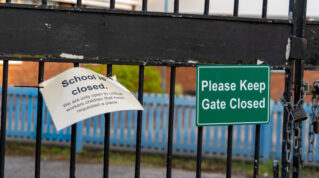The spotlight on air filtration has heightened in recent months with lacklustre Covid guidance advising educational institutions to keep windows open as a way of generating a fresh air supply into shared spaces. With face masks reintroduced into schools, illnesses and infection will continue to be on many parents’ and employees’ minds. But while the continued presence of Covid means infection control is demanding more of our attention now, the fact is that this attention is always deserved – not just as a recovery solution from the pandemic, but to support better teaching and learning in the long term.
Some 3.4 million children are currently at risk of long-term health conditions and infectious diseases due to poorly ventilated schools in every corner of the UK. Young people spend around 7,800 hours across their educational life in school, and the impact of poor indoor air quality can stay with them long after they leave. Without an effective indoor air quality programme in place, infection can easily spread. And by the government’s own rationale, each day of learning is essential and every absence impacts on potential grades and life chances.
And of course it’s not just the children. Teachers spend at least 30 hours each week in the school environment and are also put at risk of exposure to harmful airborne viruses. In fact, even before the pandemic, the average teacher had 4.1 sick days each year. For schools, this means additional costs and resources have to be put into sourcing substitute teachers at the last minute, causing more disruption to learning – costs that could be prevented by investing in a robust indoor air quality solution.
But it’s not just infection that impacts the health and wellbeing of pupils and teachers. Productivity and concentration also take a hit from high CO2 concentrations in classrooms. Combined with increased temperatures and humidity, this can significantly reduce the air quality within the environment. Too much CO2 can cause drowsiness, tiredness and a lack of concentration.
Productivity and concentration also take a hit from poor air quality
Indoor air quality is a challenge for many of the 32,000 schools across the UK, especially those in older buildings without good mechanical ventilation. However, even many newer school buildings are not sufficiently equipped to prevent risks from poor air quality. Official guidance dictates that opening a window is a free and sufficient way of generating a fresh air supply, but it isn’t a practical, or effective, long-term solution. During the winter months, open windows cause discomfort to pupils, as well as resulting in significant increases in heating bills. And for schools in urban areas, there’s also the danger of external pollution, such as vehicle emissions making its way into the building.
Schools must take the opportunity to act now to prevent the continued disruption to teaching and learning in the long term. And for that to happen, the Department of Education must make more funding available to protect pupils’ and staff’s health and wellbeing. CO2 sensors are a key way to continuously monitor indoor air quality, but many schools have yet to receive them, and the reality is that they are insufficient – especially for the many classrooms where there is no window to open.
When balanced against the cost of teacher and pupil absence to schools and to the economy, there are many affordable solutions for improving indoor air quality and reducing the risk of airborne infections. These air quality technologies are proven to help limit the potential for Covid outbreaks, but they offer much more than that.
Improved air quality is shown to increase performance and grades due to better cognitive function and decreased incidence of headaches and respiratory issues. Clean air is the invisible piece of the clean learning environment puzzle, and is arguably a matter of safeguarding.
Covid has brought that to our attention. But long after the pandemic recedes, parents, pupils and teachers should continue to expect that health, wellbeing, learning and school budgets aren’t continually put at risk by poor air quality.















Your thoughts